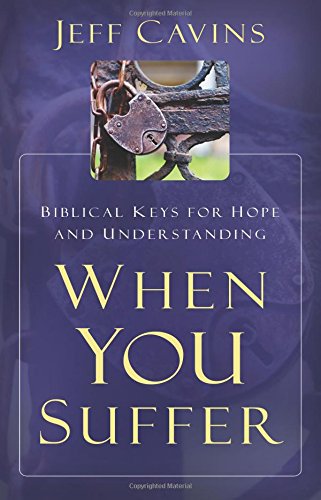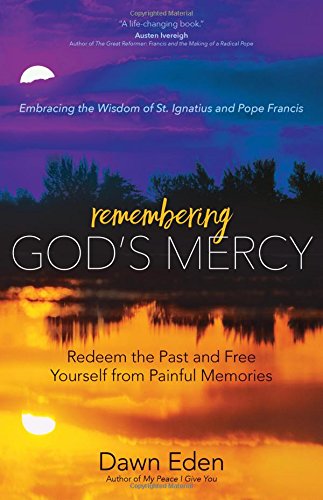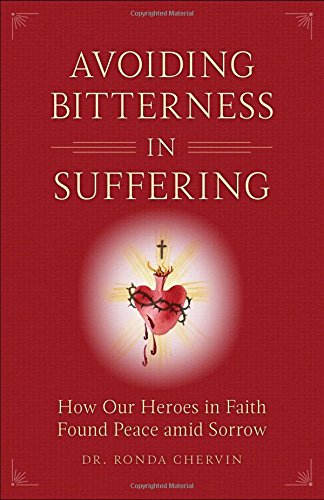Good Reads on How to Benefit From Suffering
Book picks from Jeff Cavins, Dawn Eden and Ronda Chervin.

Suffering can make God a hard sell. Atheists often use it as proof he doesn’t exist: “If there was a loving God, he would not allow… (Fill in the blank).”
But suffering does not disprove God, and it can actually draw us closer to him if we embrace it.
How can we learn to rethink the concept of suffering? Three new books on suffering can help.
Carrying Crosses
Catholic author and speaker Jeff Cavins, in When You Suffer: Biblical Keys for Hope and Understanding, challenges readers to live 100% by accessing all of the opportunities to love, grow and become more like Christ, including through suffering.
By doing this, he says, we answer the call in Galatians 2:20, “It is no longer I who live, but Christ who lives in me.”

The first step, Cavins explains, is to accept suffering and to stop treating our trials as things that get in our way. “As we look through salvation history in the Bible, we can discover several purposes for suffering, but it is not until we come to Christ that we understand the full redemptive dimension of suffering,” he writes. “Christ Jesus conquered suffering by love. Because we are joined to him, our own suffering takes on redemptive value.” Cavins points out that, through the sacrifice of the Mass, we have the opportunity to join our sufferings to Christ, and it is there — on the altar of the New Covenant — that our sacrifices truly make sense. In this way, our trials can be turned into joy and that joy into strength.
“We learn that in times of trial, God’s grace — that is, the very life of the Trinity — is sufficient for every situation,” Cavins says.
The alternative, according to him, is to wallow in self-pity, which wastes suffering and can exaggerate and prolong it. “When you begin to agree with God and offer up your suffering, you begin to understand how the power of the cross makes all things new.”
The Pain of Memories
In Remembering God’s Mercy: Redeem the Past and Free Yourself From Painful Memories, Dawn Eden, a former rock journalist and writer for the New York Post and the (New York) Daily News, guides readers through the suffering that comes from an inability to release the past. Therapy can help one cope and overcome such pain, but to truly break free, she says, we need spiritual help.
“Only the love of God can untangle the web of regrets and resentments that prevent us from moving forward,” Eden explains. “Only the Divine Physician can heal our hearts.”

Eden draws on her own healing from an abusive past and examples of St. Ignatius of Loyola, St. Peter Faber and Pope Francis to show how the mercy of God can heal our memories. She pointed out that when Jesus was on the cross and given the opportunity to deaden his consciousness with wine dipped with myrrh, he refused. Instead, he bore the full extent of his pain. Eden also noted that when Jesus resurrected, the scars of his crucifixion remained — no longer bringing him pain, but glory.
Eden shares her personal experience of entering more deeply into the Mass, too. “Divine grace led me to think less of my own past failures and more about Divine Mercy,” she writes. Over time, as unwanted memories came up, she offered them to Jesus in the Eucharist. “Just as Jesus gave me himself through the sacrament, so too, when I received him, I gave him myself — including my memories.”
Eden quotes Pope Francis on how our memories can help us to overcome personal challenges: “Our history is full of tensions: between past and present, between present and future, between time and eternity. Memory engages us with that tension and learns to read the present situation in the light of God’s saving power, and when read this way, the present is turned into promise for the future.”
What most defines us, he said, is not that we remember, but that we ourselves are remembered by God.
The Saints Show Us How
Ronda Chervin’s search for relief from her greatest suffering — the suicide of her son in 1991 — culminated in Avoiding Bitterness in Suffering: How Our Heroes in Faith Found Peace Amid Sorrow.
“For my husband and me, no suffering we had ever experienced, not even asthma or cancer, could rival the unbearable pain of our son’s death. For a year we wept and writhed, trying to dislodge in some way the terrible sword that had pierced our hearts.”
Chervin is a convert from Judaism and atheism, a widow and a past professor of philosophy and theology at three Catholic colleges. She drew on her experiences and theological knowledge and melded them into the lives of many saints to show readers the way through suffering.

By looking to the saints, we see suffering interspersed with joy and peace and a promise of eternal bliss. “All the energy I put into running away from pain, the saints put into running toward Christ,” she says. “As a result, when I want to find joy in Christ, I have to retrace my steps … finding joy in him in the midst of trials.”
In their union with Christ, Chervin explained that the saints did not suffer alone. “Their suffering was his, and his was theirs. I can imitate them by longing for that intimacy instead of escaping into my addictions.”
She noted that she can desire to offer up the suffering in her life for him.
“I need to ask Jesus to inundate me with love so I will become stronger,” she says. “In the meantime, weak as I am, by humble acceptance of pain that cannot be evaded, I can prepare myself for closer union with its greater solace.”
In the end, Chervin, said we only have two choices: to suffer joylessly or to rejoice in the midst of suffering as the saints did. The journey may not be easy, but the choice is obvious.
Patti Armstrong writes from North Dakota.















